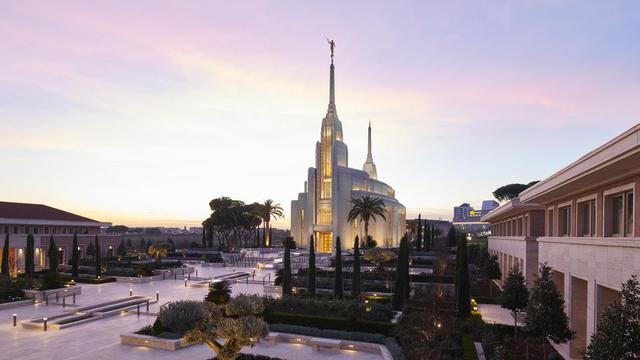Elder Dieter F. Uchtdorf said, “Inquiry is the birthplace of testimony. Some might feel embarrassed or unworthy because they have searching questions regarding the gospel, but they needn’t feel that way. Asking questions isn’t a sign of weakness; it’s a precursor of growth.”
Part of the appeal of the Questions Worth Exploring sessions is that while the speakers focus on responding to a particular question, no one claims to give a definitive or final answer. Rather, each offers thoughts that add to further discussion around answers to a specific question. This allows others to learn and feel emboldened to pursue more knowledge on a subject which can lead to the growth mentioned by Elder Uchtdorf.
At the third Questions Worth Exploring event, Barbara Morgan Gardner, BYU professor and author of The Priesthood Power of Women, focused on the question, “How do I access power through temple covenants?” While answers to this question are more personal in nature because temple covenants are between an individual and God, Gardner offers thoughtful responses that help provide direction to someone seeking more understanding on this subject.
To access priesthood power through covenants, one must first make covenants with God. Gardner explains, “We are told at baptism to receive the Holy Ghost. [In section 84 of the Doctrine and Covenants] we are also told to receive the priesthood.” She continues, “The only place that we can receive the fulness of the Holy Ghost is in the temple. I hope we understand that any time we’re talking about fulness we’re talking about the temple.” Accessing power through temple covenants is also an act of receiving and requires our willingness to be active participants with God. Being a disciple who uses and acts with the power of the priesthood isn’t a passive process.
To further understand receiving this power, Gardner shares this quote from Elder Paul B. Pieper, “It is interesting that in the oath and covenant of the priesthood, the Lord uses the verbs obtain and receive. He does not use the verb ordain. It is in the temple that men and women—together—obtain and receive the blessings and power of both the Aaronic and Melchizedek Priesthoods.”
Gardner reminds us that in 2019, President Russell M. Nelson invited women specifically to “study prayerfully all the truths you can find about priesthood power.” He then recommended Doctrine and Covenants sections 84 and 107 as places to begin studying this topic, which can help bring further understanding about accessing priesthood power through our temple covenants. In section 84 there is information about the oath and covenant of the priesthood. Gardner says, “What are the blessings of the oath and covenant of the priesthood? All that the Father has. How much more could we want than everything? That’s what we’re talking about when we’re talking about the oath and covenant of the priesthood.”
Gardner goes on to share thoughts from her personal study on this topic through “a very brief list of powers through the oath and covenant of the priesthood as found in the scriptures and through the words of the living prophets.”
- The power of enlightenment, testimony, knowledge, and understanding
- Power to thwart the forces of evil
- Power which enables us to use our gifts and capabilities with greater intelligence and increased effectiveness.
- Power to overcome the sins of the world
- Powers to be better qualified to teach
- Power with which to strengthen [our] earthly families
- Personal revelation that may bless [our lives] with power, knowledge, light, beauty, and truth from on high.
- Powers of heaven to protect and strengthen children and families.
- Power of increased love
- Power of godliness
- Power of spiritual refinement
- Power of protection
- Power of the fulness of the Holy Ghost
Her list does not include citations which creates opportunities for more in-depth personal study and growth by seeking out the sources of these promises.
The power of the priesthood that we obtain through the temple, and accessing that power, is inclusive of women and men, and marital status doesn’t exclude anyone from these blessings. “I’m always sensitive about women being single—especially women who are not married—who are making and keeping sacred covenants in the temple,” Gardner shares. “I was not married until I was forty, so I know what it’s like feeling like sometimes it’s not including you. That’s not the case. The endowment and the covenants associated with the endowment apply to women married or single, and men married or single. There are promises in the future and many of those are compensatory promises associated with it.”
Rather than end her thoughts with a summary answer, Gardner offers more questions that may help direct personal study: “What power do you need to save your family? What power do you need to save yourself? And how are you going to call upon that power?”
Gardner’s complete address is available through Deseret Book as part of the Questions Worth Exploring session three digital event recording.


